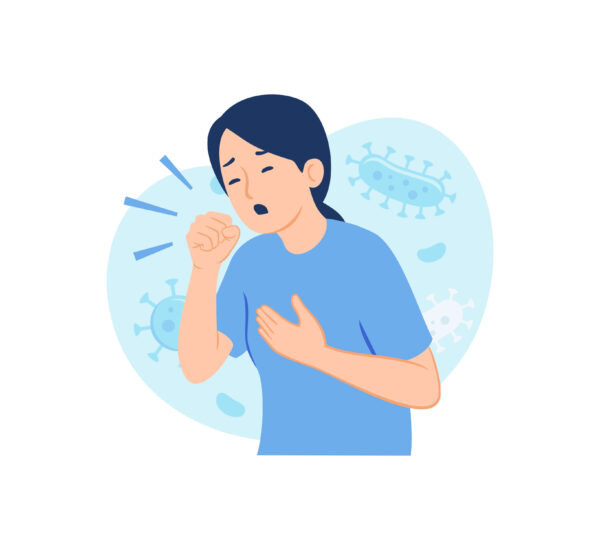Living with allergic asthma limits the patients from enjoying life. That’s because common triggers impact the day-to-day activities. With this scenario, the best way to prevent its progression is through knowing the effective treatment plans for ultimate prevention
In this article, we will explore the basics of this condition, and discuss the possible solutions. Let’s begin!
Identifying Allergic Asthma
Allergic asthma is a chronic respiratory condition that affects millions of people worldwide. It is a type of asthma that is triggered by allergens, substances that are harmless to most people but cause an allergic reaction in others.
When a person with allergic asthma comes into contact with an allergen, such as pollen, pet dander, or dust mites, their immune system overreacts. It causes inflammation and narrows the airways. Thus resulting in wheezing, coughing, chest tightness, and difficulty breathing.
Common Triggers of Allergic Asthma
There are a variety of allergens that can trigger allergic asthma symptoms. Common triggers include:
- Pollen from trees, grasses, and weeds: During certain times of the year, pollen from various plants can be found in the air, leading to allergic reactions in susceptible individuals.
- Animal dander from pets like cats and dogs: The proteins found in the skin cells, saliva, and urine of animals can trigger asthma symptoms in some people. It’s important to note that even if you don’t have a pet at home, you can still be exposed to animal dander when visiting places where pets are present.
- Dust mites: These microscopic creatures are found in household dust and thrive in warm, humid environments. Dust mite allergens can be found in bedding, upholstered furniture, and carpets, making it crucial to maintain a clean and dust-free living environment.
- Mold spores: Mold is a type of fungus that releases tiny spores into the air. When inhaled, these spores can trigger allergic reactions and asthma symptoms. Mold can be found in damp areas of the home, such as bathrooms, basements, and kitchens.
- Cockroach droppings: Cockroach allergens can be found in the droppings, saliva, and body parts of these pests. In areas with high cockroach infestations, individuals with allergic asthma may experience worsened symptoms.
- Certain foods, such as peanuts and shellfish: While food allergies are more commonly associated with immediate allergic reactions, they can also trigger asthma symptoms in some individuals. It’s important for those with food allergies to be cautious and avoid consuming allergenic foods that may trigger their asthma.
- Air pollutants, like smoke and strong odors: Environmental factors such as smoke, strong odors, and air pollution can irritate the airways and trigger asthma symptoms. It’s important to minimize exposure to these pollutants and maintain good indoor air quality.
It’s important for patients to identify their specific triggers to minimize exposure and prevent asthma attacks. This can be done through allergy testing, which can help pinpoint the exact allergens that are causing symptoms.
How Allergic Asthma Affects Quality of Life

In addition to the physical symptoms, it can also affect mental and emotional well-being. The presence of chronic symptoms and the fear of experiencing an asthma attack can lead to increased anxiety and reduced physical activity..People with such respiratory illness often find themselves constantly worrying about their next asthma episode and the potential triggers in their environment. Additionally, the constant need to monitor symptoms and take medications can be overwhelming and stressful.
Moreover, engaging in physical exercise or participating in sports can be challenging due to the risk of triggering symptoms. This can result in reduced exercise tolerance, which may lead to a sedentary lifestyle and potential weight gain.
It is important for individuals with allergic asthma to develop strategies to manage their condition effectively. With proper management and support, individuals with allergic asthma can lead fulfilling lives and minimize the disruption caused by their condition.
Trigger Avoidance for Better Health

Once triggers are identified, individuals can take steps to avoid or reduce their exposure to these allergens. Thus, involve making changes to their living environment.
In addition to trigger avoidance, individuals with allergic asthma may also be prescribed medications to help manage their symptoms. These may include quick-relief medications, such as short-acting bronchodilators, which provide immediate relief during asthma attacks, as well as long-term control medications, such as inhaled corticosteroids, which help reduce airway inflammation and prevent symptoms from occurring in the first place.
Dealing with this condition requires a comprehensive approach to management that includes trigger avoidance, medication adherence, and regular communication with healthcare providers. By taking these steps, individuals with allergic asthma can lead fulfilling lives and minimize the impact of their condition on their daily activities.
Identifying and Avoiding Triggers
One of the primary goals in managing allergic asthma is to identify and avoid triggers. This can be achieved through various measures, including:
- Monitoring pollen counts and staying indoors during peak times
- Using allergen-proof covers on pillows and mattresses to protect against dust mites
- Regularly cleaning and vacuuming the home to reduce the presence of allergens
- Keeping pets out of the bedroom or considering allergy-friendly breeds
- Maintaining optimal indoor humidity levels to prevent mold growth
By taking these simple steps, individuals can significantly reduce their exposure to triggers and minimize the risk of asthma attacks.
Lifestyle Changes for Prevention

Alongside avoiding triggers, certain lifestyle changes can help prevent allergic asthma attacks. These include the following:
Smoke-free Environment
Exposure to secondhand smoke can worsen allergic asthma symptoms and increase the risk of asthma attacks. Secondhand smoke contains various harmful chemicals that can irritate the airways and trigger asthma symptoms. Avoiding areas where others smoke can significantly improve lung health and reduce the likelihood of asthma exacerbations.
Active lifestyle
Regular exercise is beneficial for individuals with allergic asthma as it helps improve lung function and overall fitness. Engaging in activities such as walking, cycling, or swimming can strengthen the respiratory muscles and enhance the efficiency of the lungs. It is important to consult with a healthcare professional before starting any exercise program to ensure it is safe and appropriate for individual circumstances.
Diet & Nutrition
A balanced diet rich in fruits and vegetables provides essential vitamins, minerals, and antioxidants that support overall health and immune function. These nutrients can help reduce inflammation in the airways and strengthen the body’s defenses against allergens. Incorporating a variety of colorful fruits and vegetables into meals can provide a range of beneficial compounds that contribute to respiratory health.
Lessen Stress
Stress can have a significant impact on asthma symptoms, as it can trigger inflammation and worsen airway hypersensitivity. Managing stress through relaxation techniques, such as deep breathing exercises and meditation, can help reduce the risk of asthma attacks. These techniques promote relaxation, calmness, and a sense of well-being, which can have a positive effect on both physical and mental health.
By making these lifestyle changes and implementing strategies to identify and avoid triggers, individuals with allergic asthma can take proactive steps to prevent asthma attacks and improve their overall quality of life.
Treatment Options for Allergic Asthma
Medications for Allergic Asthma
Medications play a crucial role in managing allergic asthma. Some of the common medications prescribed for allergic asthma include:
- Inhaled corticosteroids to reduce airway inflammation
- Short-acting beta-agonists for quick relief of symptoms during an asthma attack
- Long-acting beta-agonists to control and prevent symptoms
- Leukotriene modifiers to help decrease inflammation and mucus production
It’s important for individuals with allergic asthma to work closely with their healthcare provider to determine the most appropriate medication regimen for their specific needs.
Conclusion
Ensuring the best options for a better health condition should be the priority of every allergic asthma patient. Dealing with this respiratory problem involves knowledge and guidance, which is why trusting a pulmonologist is the best option.
Book an online consultation today for immediate intervention and diagnosis. Doing so allows you to face any complication that needs to be addressed early on.
Allergic Asthma Quiz
Test your knowledge about allergic asthma triggers, symptoms, and management
1 of 5 questions
Quiz Complete!
Concerned about allergic asthma symptoms?
Consult with a specialist to get proper diagnosis and personalized treatment options.
Find an Asthma Specialist


